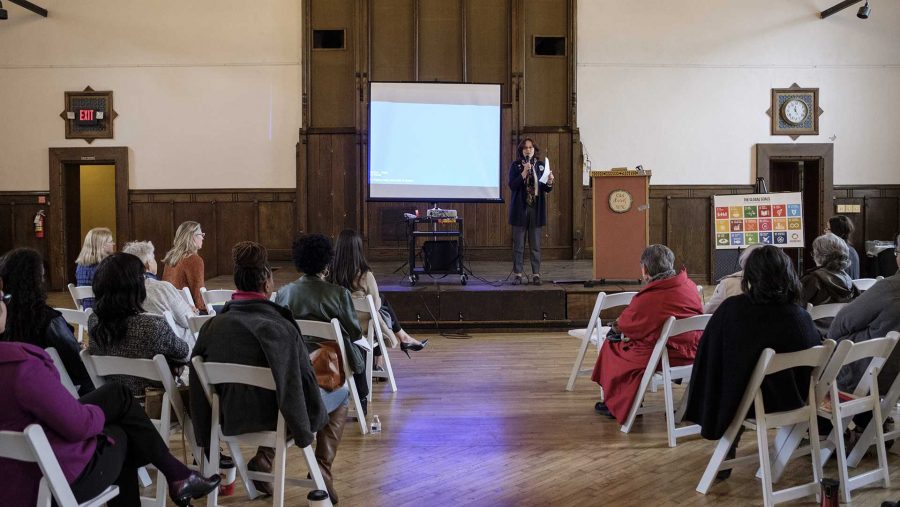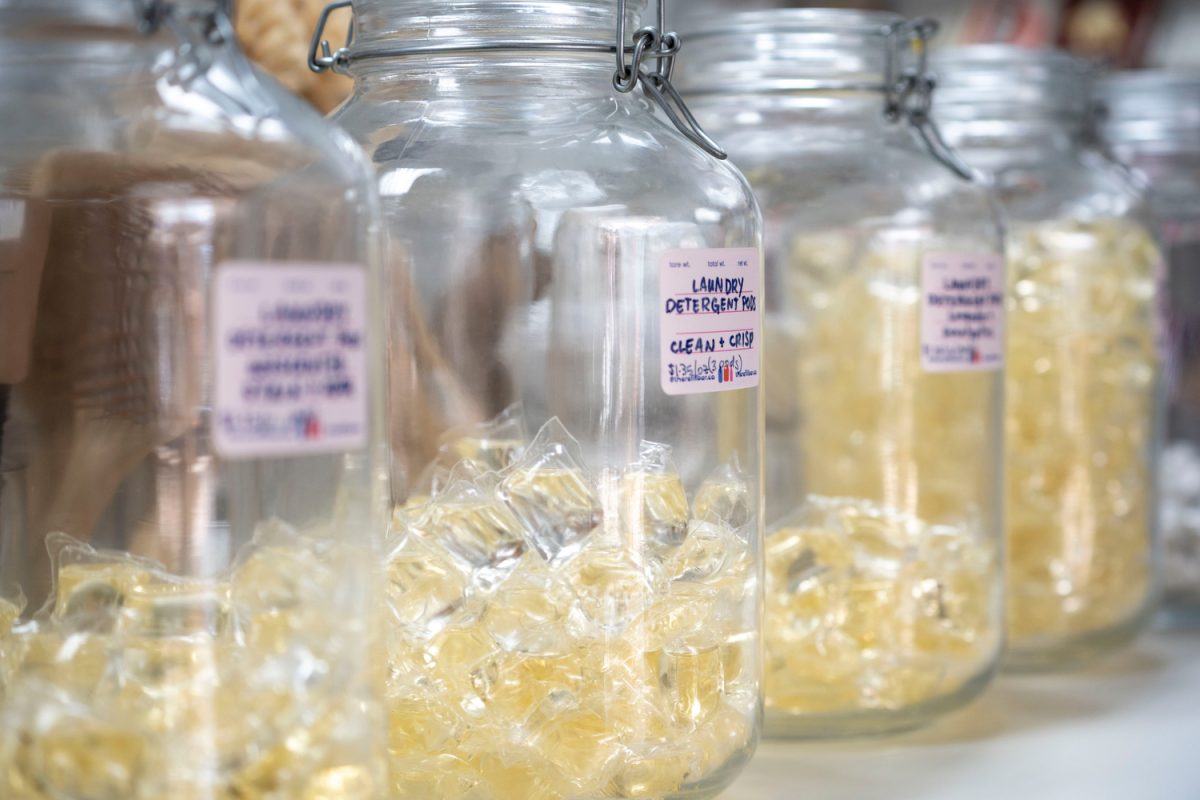n honor of the 72nd anniversary of the United Nations, the Iowa United Nations Association launched Empower-Her on Tuesday, a project dedicated to making feminine-hygiene products accessible to all women and girls, both globally and locally.
Karima Safsaf, the founder of Empower-Her, said the project consists of three different aspects: international, local, and policy.
The international, or global, section revolves around creating “sustainable kits,” consisting of five or six reusable pads, a towel, and a bar of soap. This will be sent to girls and women in other countries who don’t have easy access to the products.
Linda Kahlbaugh, the Iowa City team leader for Days for Girls International and one of the speakers at the kickoff event, noted the importance of the project.
When many girls around the world hit puberty, they don’t have sufficient products, forcing them to miss school, she said.
As a result, the girls are often married off at a very young age and forced to have children before their bodies have fully developed, and many die in childbirth, Kahlbaugh said.
“There’s health issues involved,” she said. “The girls are sitting on cardboard, rags. They’re using corn husks, bark, and even dried cow dung.”
She explained how in some places, teachers and administrators in some schools or orphanages who possess these necessary products will extort sex from the young girls and women who cannot do anything to change their situation.
To attempt to begin remedying this problem, Kahlbaugh, the Iowa City team, and 1,082 other teams worldwide help assemble “sustainable kits” and sew the reusable pads.
In an attempt to begin remedying the problem, Kahlbaugh, the Iowa City team, and 1,082 other teams worldwide helped to assemble “sustainable kits” and sew reusable pads.
RELATED: Some hope UI copies Brown’s lead
Kahlbaugh said the kits are not simply handed out — the organization also works to educate girls about hygiene, reproduction, and childcare.
Aside from the many teams, there are more than 15 “local enterprises” that work on training girls in-country to make and distribute the products.
“It provides an income for the women making the kits and also gives the girls in-country a local source,” Kahlbaugh said. “It’s the most sustainable option, and I really think it’s the future.”
She stressed that anyone can get involved with Iowa City team, whether through sewing, assembling kits, or donating supplies.
The second part of Empower-Her focuses on the local aspect: making feminine-hygiene products more accessible for women and girls in the United States.
“A lot of people don’t realize that nonprofits, like food pantries, often don’t have enough of these products to hand out, and there are no government programs that provide access to these products,” Safsaf said.
The final aspect is helping push policy that deals with feminine-hygiene products and reaching out to public officials who could help pass such policies.
HF 506, a bill currently in subcommittee in the Iowa House of Representatives, would remove feminine-hygiene products from the sales-tax list, lowering their cost and making them more accessible to women with a limited income.
Andrea Cohen, the executive director of IowaUNA, said there is some confusion when people hear the “United Nations” part of the organization’s name, but the main focus is education, promotion, and advocacy.
“We want everyone to understand, while the U.N. does little in the U.S., there are other principles that are just as applicable here, not just across the globe,” Cohen said.
She and Safsaf said their main goal for the project and others is to educate and inform the community.
“You can help us right here, in your own backyard,” Cohen said.










